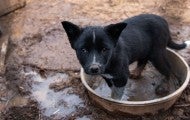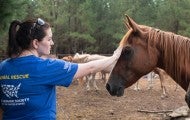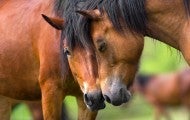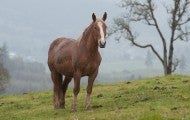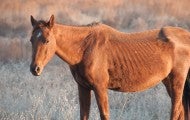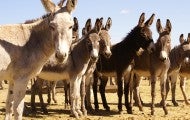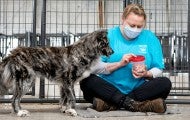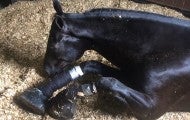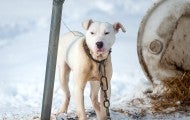The shocking number of animal cruelty cases reported every day is just the tip of the iceberg—most cases are never reported. Unlike violent crimes against people, cases of animal abuse are not compiled by state or federal agencies, making it difficult to calculate just how common they are. However...
Contents What is the Humane Society of the United States’ Animal Rescue Team? How/when does the team get called in to help? What sort of situations are you typically called in for? How do you use your mobile veterinary unit? If you hear about a situation where animals need help, can you just go? Can...
Aug. 16, 2023: In the aftermath of devastating wildfires that claimed the lives of a still unknown number of people on Maui, we mourn with our supporters and colleagues in Hawai'i. As with most disasters, the loss of human life and the financial and other damages incurred by individuals, governments...
To thrive, horses require healthy amounts of food and water, adequate shelter and competent care. Horse owners must commit a great deal of time, energy, skill and money to ensuring their horses have everything they need to live a happy, healthy life of thirty years or more. Any time a horse changes...
Canine separation anxiety is a disorder that can develop when a pet is away from the human or other animal to whom they’re most bonded. It results in a spectrum of behaviors that can include trembling, salivating, excessive vocalization, overgrooming, loss of bladder control despite successful potty...
Fertility control: Essential to American wild burros and mustangs While wild burros are legally viewed in the same light as the American mustang, protected as a living symbol of the American West, the wild horses often seem to receive most of the public's attention. But burros have played a critical...
About our volunteers Animal rescue volunteers (ARVs) work with our Animal Rescue Team to help save animals who are victims of illegal animal cruelty and disasters. When we respond—whether to a hurricane, large-scale neglect case, dogfighting or commercial breeding operation—animal rescue volunteers...
Soring involves the intentional infliction of pain to a horse's legs or hooves in order to force the horse to perform an artificial, exaggerated gait. Caustic chemicals—blistering agents like mustard oil, diesel fuel and kerosene—are applied to the horse's limbs, causing extreme pain and suffering...
Leaving pets locked in cars is never safe. But when the weather gets warmer, it can be deadly. High temperatures can cause irreparable organ damage and even death. Protecting animals from an unnecessary death is a problem we can all agree to prevent. How to help a dog or cat left in a hot car Take...
Extreme weather events like wildfires can kill wild animals, either from the fire itself, through smoke inhalation or through loss of habitat. Animals who are very young, old or otherwise unable to move away quickly are particularly vulnerable. Wild animals cope with wildfires in a variety of ways...
